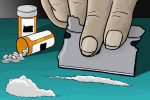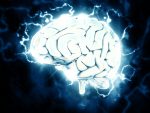Many teenagers try alcohol, tobacco or drugs. Some of them try these substances several times and stop. Others can not control their desires — that’s how addiction comes about.
Why do teenagers abuse drugs and alcohol? Adolescents can try alcohol or drugs for various reasons. The most popular of them are:
— They want to be a part of the group
— They like the sensation
— They want to look more mature
— They tend to try new things and take risks
Adolescents from families in which there are problems with alcohol or drugs are also more prone to serious addictions, as are children who lack close relationships with their parents. Adolescents with low self-esteem or emotional and mental problems, such as depression, are also at high risk for substance problems.
Teenage drug addiction often starts with substance abuse, readily available synthetic drugs and medications. However, in the absence of treatment, the disease can take more severe forms, depriving a person of a full life or even leading to death. Drug addicts who started using psychoactive substances at a minor age rarely survive to 30 years of age.
And although services for treating drug addiction through rehabilitation centers are available across the country, it’s still difficult to find a clinic for a teenager — in fact, teenage drug rehab is very different from adult therapy.
How to Identify Teenage Addiction
An effective way to identify adolescent drug addiction is testing, a word that might sound intimidating but doesn’t have to be. If parents find indications that their child is using drugs, they can conduct a drug test using a test strip.
If the urine test is negative, both parents and child still benefit. The child understands that their parents are monitoring their condition, which discourages them from trying drugs. If the test detects the presence of drugs in the user’s urine, you need to immediately consult a specialist for help at a teen rehab center.
Treatment and Rehab for Teens
Although it’s difficult, teenage drug addiction can be eradicated, especially if using rehabilitation programs. Rehab programs are especially effective in adolescence because the programs often have an educational component, which is a lot more effective on young minds than older adults who are already set in their ways.
By teaching the adolescent user the dangers of drug use, rehab centers stand a much higher chance of nipping addiction in the bud by treating it early, rather than waiting until the problem is more serious and the user more intractable. As a result, after going through rehabilitation, a teenager has a much better chance of not returning to drugs.
How Do You Choose a Rehabilitation Center?
When choosing a treatment center, you might consider speaking with other parents who have successfully helped their child by sending them to a rehab center. If you don’t know anyone like that, then you can visit the local government clinic. A teenage narcologist should have information about the work of some paid clinics.
Sometimes, though, the adolescent will be uninterested in these classes. If the child becomes bored visiting the clinic or begins to resent visiting for consultations, then it might make sense to look for another program. This period of time is critical, so it’s important that you avoid forcing something that doesn’t appear to be working. If this is the case, then it’s worth contacting a center that deals exclusively with rehabilitation.
What Can You Expect from Rehab?
The individual experiences might different from user to user, but, in general, teenage drug users attending a rehabilitation center can expect to receive these benefits:
— The knowledge of better ways to respond to problems and cope with stress without drugs
— A better understanding of their family relationships, which will help them understand their parents
— A deeper insight into their personal psychology, motivators and triggers
— The availability of experts who will help them learn to manage depression and other mental health problems, which, often, are the causes of drug addiction
— A renewed focus on other passions of theirs, which can help reduce recidivism and positively impact their career path
— An increased sense of independence and responsibility, as well as self-confidence and dedication without the help drugs
— The desire to restore severed social ties
These are only a few changes that can occur during and after treatment. As a rule, the results of rehabilitation are purely individual. Everyone gets what they need.
Most teenagers are unaware of their addiction and believe that everything is under control and at any time they can stop. However, it is not. Every teenager should know that drug addiction is a disease that needs to be treated and the sooner the better.
















